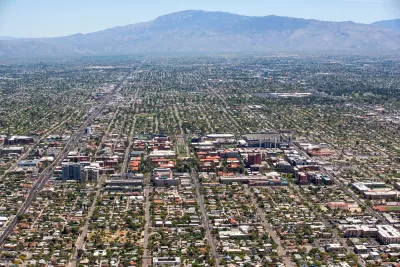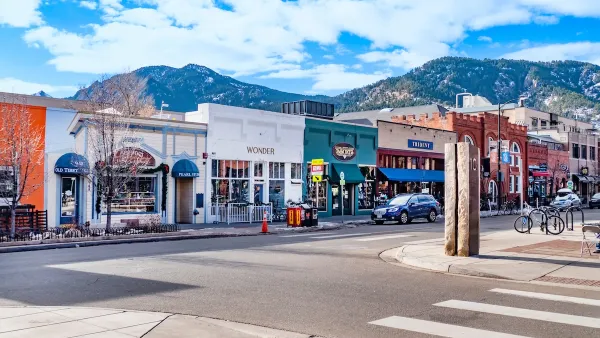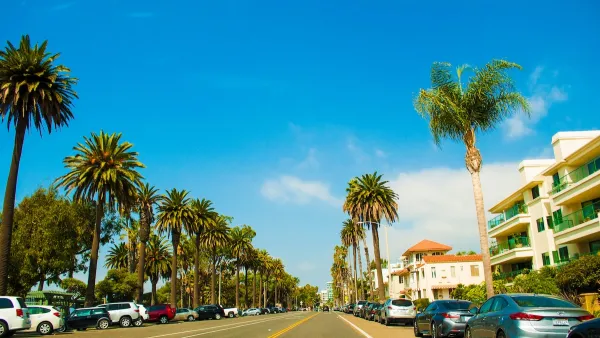Some college campuses need more parking than others, depending on commuting rates and walkable housing supply. Some campus planners are hoping, however, that soon all universities will need a lot less parking.

"With just one parking space for every five people, on a campus of roughly 65,000, the University of Wisconsin-Madison has one of the lowest parking ratios of any major university in the country," according to an article by Lisa Prevost.
"Because visitors to the 936-acre campus often have a hard time finding parking, the university’s latest master plan, nearing completion, recommends an additional 2,200 spaces over the next 20 to 40 years," adds Prevost.
But Gary A. Brown, the director of campus planning, is hoping none of that will be necessary. "When Mr. Brown looks into the future, he sees a campus even more reliant on ride-hailing services like Uber and car-sharing services like Zipcar, as well as the likely emergence of autonomous vehicles, trends that could substantially decrease parking demand," according to Prevost.
Prevost surveys the opinion of designers, research, and parking consultants, to see if Brown's predictions could come to fruition.
FULL STORY: On the College Campus of the Future, Parking May Be a Relic

Maui's Vacation Rental Debate Turns Ugly
Verbal attacks, misinformation campaigns and fistfights plague a high-stakes debate to convert thousands of vacation rentals into long-term housing.

Planetizen Federal Action Tracker
A weekly monitor of how Trump’s orders and actions are impacting planners and planning in America.

San Francisco Suspends Traffic Calming Amidst Record Deaths
Citing “a challenging fiscal landscape,” the city will cease the program on the heels of 42 traffic deaths, including 24 pedestrians.

Defunct Pittsburgh Power Plant to Become Residential Tower
A decommissioned steam heat plant will be redeveloped into almost 100 affordable housing units.

Trump Prompts Restructuring of Transportation Research Board in “Unprecedented Overreach”
The TRB has eliminated more than half of its committees including those focused on climate, equity, and cities.

Amtrak Rolls Out New Orleans to Alabama “Mardi Gras” Train
The new service will operate morning and evening departures between Mobile and New Orleans.
Urban Design for Planners 1: Software Tools
This six-course series explores essential urban design concepts using open source software and equips planners with the tools they need to participate fully in the urban design process.
Planning for Universal Design
Learn the tools for implementing Universal Design in planning regulations.
Heyer Gruel & Associates PA
JM Goldson LLC
Custer County Colorado
City of Camden Redevelopment Agency
City of Astoria
Transportation Research & Education Center (TREC) at Portland State University
Jefferson Parish Government
Camden Redevelopment Agency
City of Claremont





























